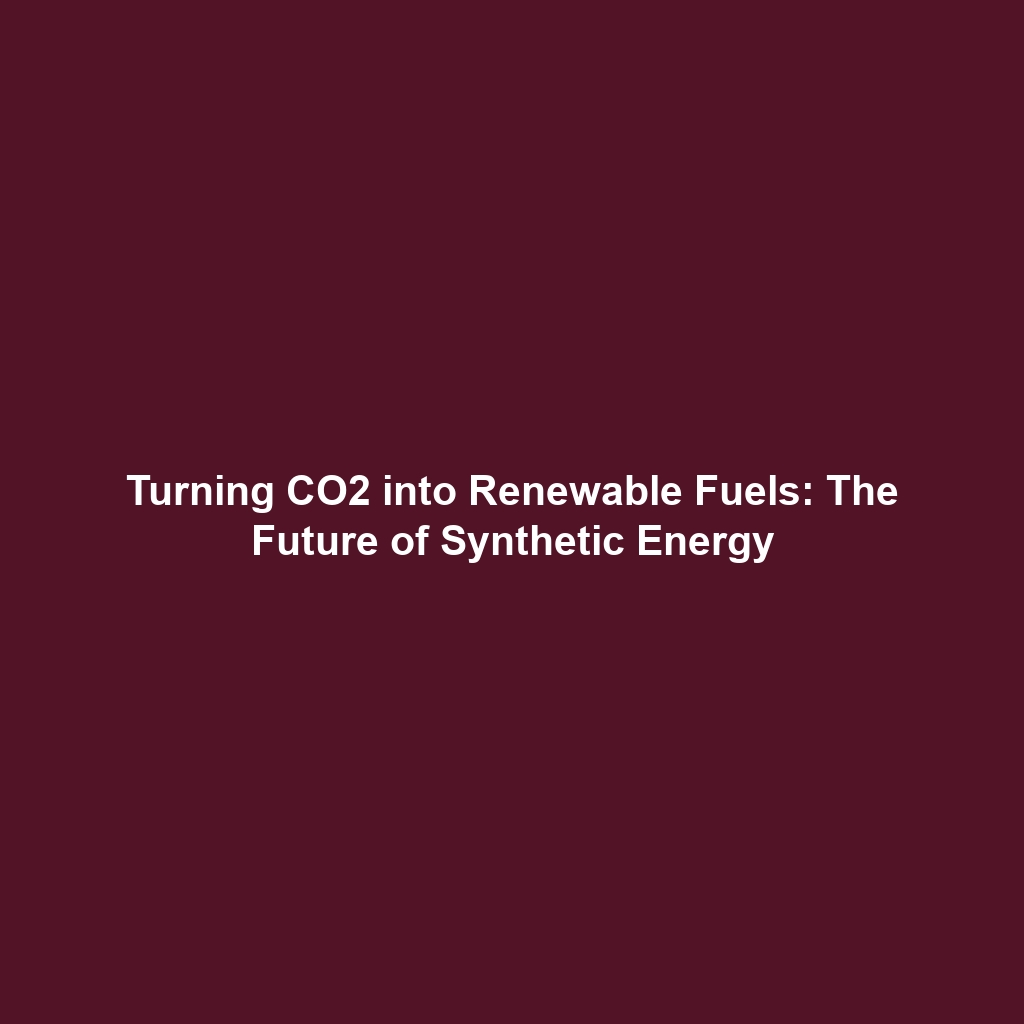Conversion into Synthetic Fuels: Using CO2 to Create Renewable Fuels
Introduction
The conversion of carbon dioxide (CO2) into synthetic fuels stands at the forefront of innovations aimed at mitigating climate change. This process, which is inherently linked to the broader context of Carbon Capture & Storage (CCS), not only helps in reducing greenhouse gas emissions but also contributes to creating renewable energy sources. The significance of using CO2 to create renewable fuels lies in its potential to close the carbon loop, transforming waste gases into valuable energy resources. As the global push for sustainable solutions intensifies, understanding this conversion process has become increasingly crucial.
Key Concepts
Understanding Synthetic Fuels
Synthetic fuels, or synfuels, are created from resources available in abundant supply through various chemical processes. The conversion of CO2 plays a vital role in this context by harnessing a greenhouse gas and transforming it into usable energy.
The Role of Carbon Capture & Storage (CCS)
CCS is a collection of technologies that capture CO2 emissions at their source (such as power plants) and prevent them from entering the atmosphere. By integrating CCS with the conversion of CO2 into synthetic fuels, we can significantly reduce environmental impacts while creating renewable energy solutions. This innovative approach not only addresses issues of waste but also produces fuels that can replace fossil-derived energy.
Applications and Real-World Uses
The applications of using CO2 to create renewable fuels are numerous and impactful, enhancing the relevance of Carbon Capture & Storage (CCS) in the energy landscape:
- Transportation Fuels: Synthetic fuels can be used in existing internal combustion engines, providing a seamless transition towards greener fuel options.
- Industrial Uses: Industries can employ these fuels as feedstock for chemical processes, reducing their dependence on fossil fuels.
- Energy Storage: Converting CO2 to fuels provides a viable method for long-term energy storage, balancing supply and demand on renewable energy sources.
Current Challenges
Despite the promising outlook, several challenges of converting CO2 into synthetic fuels within the broader scope of Carbon Capture & Storage (CCS) remain:
- High operational costs associated with synthetic fuel production technologies.
- Energy requirements and inefficiencies in the conversion processes.
- Infrastructure needs for widespread implementation and deployment.
- Regulatory hurdles and policies related to carbon emissions and synthetic fuel production.
Future Research and Innovations
The future of converting CO2 into synthetic fuels is poised for significant breakthroughs. Upcoming research is focused on:
- Advancing catalysis technologies to improve conversion efficiency.
- Developing integrated systems for capturing CO2 and producing synthetic fuels simultaneously.
- Exploring alternative feedstocks and processes to create more sustainable fuel options.
These advancements could drastically lower production costs and enhance the viability of synthetic fuels as a renewable energy source, thus reinforcing the role of CCS in combating climate change.
Conclusion
In summary, the conversion of CO2 into synthetic fuels represents a critical intersection of technological innovation and environmental stewardship, making it a pivotal element of Carbon Capture & Storage (CCS). As we move towards a more sustainable future, further research and investment into this field are essential. To stay informed on the latest developments in CCS and synthetic fuels, consider exploring our related articles on renewable energy technologies and carbon management strategies.
